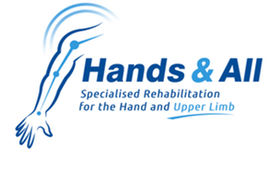Providing you access to hand therapists and physiotherapists, encouraging a speedy recovery after treatment.
Dr Jarrett works with a number of hand therapists and physiotherapists, including an in-house team here at Murdoch.
If you do not already have a therapist (in which case we usually recommend you stay with your exisiting therapist), you can access hand therapists and a physiotherapist at our practice.
Please note: Dr Jarrett has a financial interest in the therapists in Hands & All, however, he is happy to refer you to an alternative, reputable hand therapy group if you prefer.
If you have shoulder surgery, we recommend you see Dr Jarrett’s physiotherapist prior to and after your shoulder surgery before returning to your existing provider.
Hand Post-Injury / Post -Operative Care
Your hand is a delicate & finely crafted body part, designed to perform many critical functions within your life.
Trauma can injure your hand causing reduced hand function and pain. It is important to ensure the best form of medical care is undertaken, and that post-injury or post-operative care by yourself and therapists is carried out effectively.
Remember: An elective operation is also perceived by your hand as an injury, and the same care required of an injured hand will be necessary.
What to expect after a hand operation or hand injury.
Following a hand injury or surgery, many changes take place in the hand. Tissue damage, bleeding and chemicals are released by cells and can cause swelling and pain. The swelling is in part an attempt by the body to heal itself.
The changes taking place in the hand deliver substances to the tissue required to heal, and many of the responses from the body to the injury are beneficial. However, other effects of the body’s response are counterproductive in the hand, and particular care is required to reduce these effects.
Swelling causes stiffness in the hand due to the contracture of ligaments and the glueing together of tissues that are meant to glide over each other.
It is easier to prevent problems associated with swelling by early treatment and prevention, rather than treating the resulting stiffness later. Swelling can be reduced with the use of slings and specially designed compression devices. The hand may be splinted in a position intended to prevent ligament contracture, and therapy will be used to enhance motion and function in a carefully controlled manner.
Following bone fractures or injuries of some tendons or ligaments, the hand may require special splint for some days or weeks. This splint is critical to getting the best result for your hand, and it is important to take Mr Jarrett’s and your hand therapist’s advice.
Some wounds will require extensive and frequent dressings, while others will need minimal care. Please speak to our staff if you have questions. We are here to support you and guide your wound care treatment.

